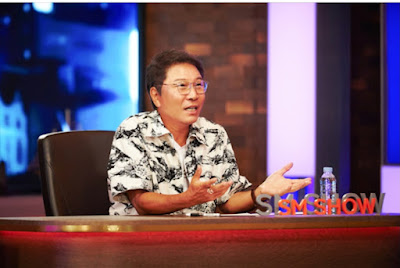Korea has witnessed shareholder activism version 2.0.
The first wave, which included foreign hedge funds, was ineffective because they aimed too high and encountered numerous obstacles. The current wave, which has already sparked a flurry of activity in the vital K-pop industry, is led by domestic investors.
Align Partners Capital Management, a relatively unknown fund, acquired 1.1% of SM Entertainment and demanded an investigation into potential conflicts of interest and connected-party transactions involving a private company owned by SM Entertainment founder Lee Soo-man.
The stock price of SM Entertainment skyrocketed upon the company’s rapid launch.
Foreign hedge funds acquired substantial stakes in Samsung Electronics and other large corporations in the early 2000s, citing poor governance and a number of other violations. In an effort to end the Korea discount — the phenomenon in which Korean shares trade at lower price-to-earnings ratios than comparables in other countries — local businesses are acquiring stakes, aided by local shareholders eager to increase portfolio values.
The conflict began in March, when Align Partners attempted to challenge Lee’s “dictatorial management” as the largest shareholder of the K-pop powerhouse at a general shareholder meeting.
It demanded the severing of ties with Like Planning, a Lee-owned company that was collecting up to 6% of SM’s annual revenue as “production fees,” as well as the appointment of new outside directors.
The objective of shareholder activists is to ensure that all shareholders are treated equally and to end the practise of the largest shareholders acting as if they own the company, despite the fact that their holdings are typically less than half.
In 2022, activist shareholder actions affected 47 Korean businesses, according to Insightia. This number represents a significant increase from the 10 businesses in 2020 and 27 businesses in 2021.
According to Insightia, activist shareholder actions have affected 511 U.S. businesses, 107 Japanese businesses, 61 Australian businesses, and 53 Canadian businesses.
Shareholders requested in 2022 new directors and auditors, modifications to memorandums of understanding, compensation caps for the board, and higher dividend payout ratios. According to analysts, the situation is anticipated to remain unchanged for the remainder of the year.
Truston Asset Management, which owns 5.8% of Taekwang Industrial, requested on Thursday that the company appoint an independent director and increase its dividend payout ratio by 20 percentage points.
Vice President of Truston Lee Sung-won stated, “Although Taekwang Industrial’s financial structure and primary business are stable, its average dividend payout ratio of 0.3% is the lowest among all publicly traded companies.” The capital management policies that require shareholders to cover their losses must be revised.
Truston opposed Taekwang’s plan to invest 400 billion won (313 million dollars) in Heungkuk Life Insurance and halted it in December due to opposition.
Flashlight Capital Partners (FCP) recently requested that KT&G restructure its business in order to separate its tobacco and ginseng divisions. FCP owns 1% of KT&G’s total shares.
According to Lee Sang-hyun, CEO of FCP, if the market capitalization of KT&G’s principal subsidiary Korea Ginseng Corporation is reassessed, KT&G shares will increase significantly.
Additionally, Align targeted financial institutions. It requested in a letter to seven companies, including KB Financial Group, that they “increase the dividend payout ratio by more than 50 percent.”
Prior to shareholder meetings in March, financial institutions are preparing policies to satisfy demand. In 2022, KB Financial Group had the highest dividend payout ratio at 33%, followed by Shinhan Securities and Woori Financial Group at 30% and Hana Financial Group at 27%.
The number increased by seven percentage points for KB and by four percentage points for Shinhan Financial compared to 2021. During a recent conference call, the latter planned to increase the ratio to 40%.
Shareholder activism is not entirely free of criticism due to the negative example set by former presidential policy chief Jang Ha-sung and Lazard Asset Management in 2006. It was known as the “Korea Corporate Governance Fund” and was the first domestic activist fund. Its objective was to invest in healthy but undervalued companies and increase their value by altering their management.
After reporting a 19.4% loss in 2011, the fund, which had previously managed a 300 billion won investment fund, was unable to generate significant profits and was liquidated in 2012.
Foreign hedge funds were targeted as dine-and-dashers rather than solution providers, such as Elliott Management Corporation’s unsuccessful 2016 shake-up of Samsung Electronics. In 2015, Elliot Management sold its 7.12 percent stake in Samsung C&T, which it had acquired in 2014.
Positively viewed is the increasing emphasis of corporate environment, social, and governance (ESG) management on social and institutional changes.
According to Lee Sun-kyung, the director of the Korea ESG Research Institute, “prior to the acquisition of 51 percent of the shares, it was difficult for shareholder activism to gain momentum.” Now that ESG managements are being prioritised, public opinion can have an impact on the organisation.
According to some, shareholder activism places too much pressure on management.
An insider from the Korea Institute of Finance stated, “It’s a good sign that the movement is contributing to the expansion of dividend payout policies.” In spite of regulatory requests to reduce demands in response to the economic slowdown, their demands to return so much dividends to shareholders seem excessive. People must exercise caution and determine, sector-by-sector, whether the movement is intended for the company’s long-term growth or for short-term profits.


Leave a Reply